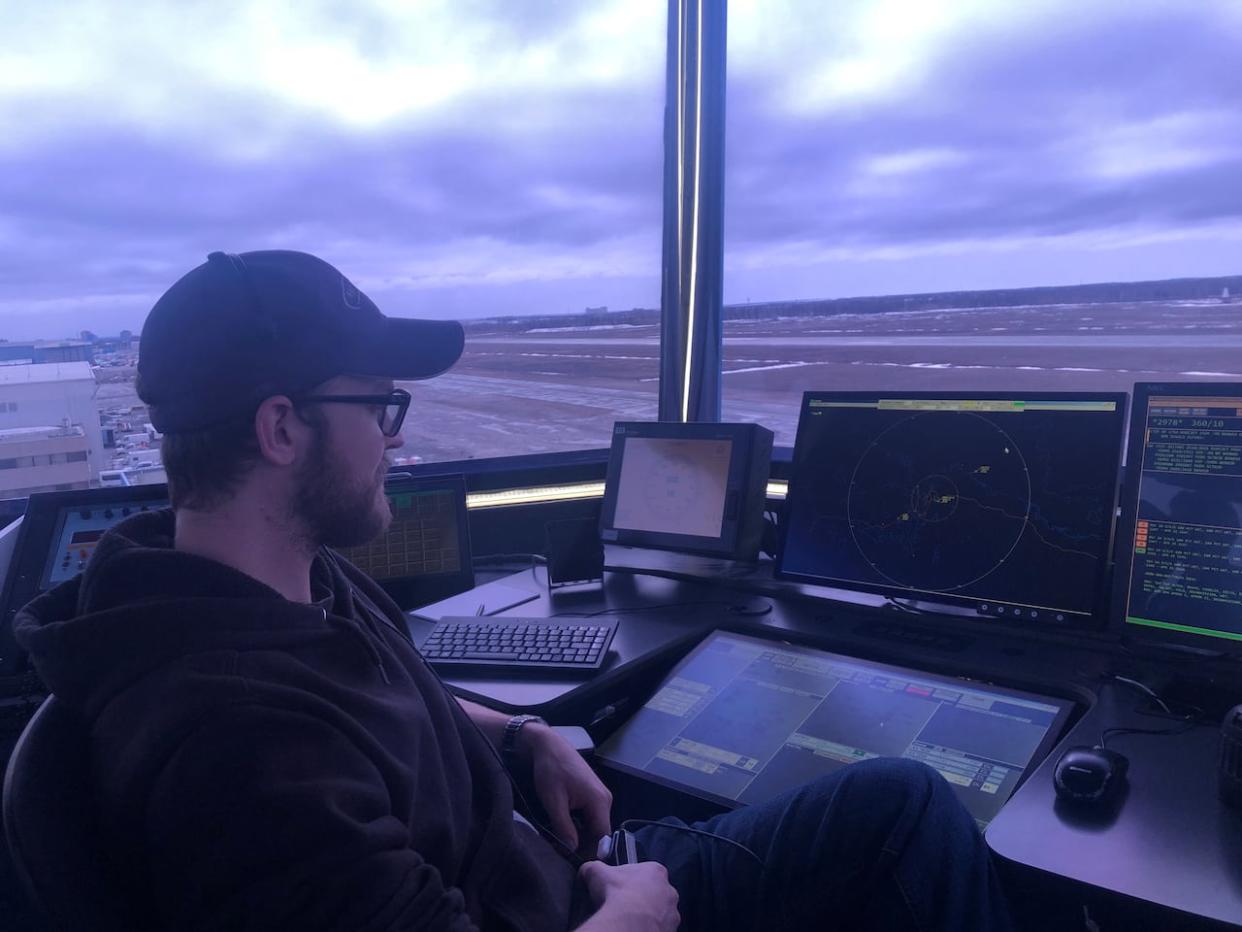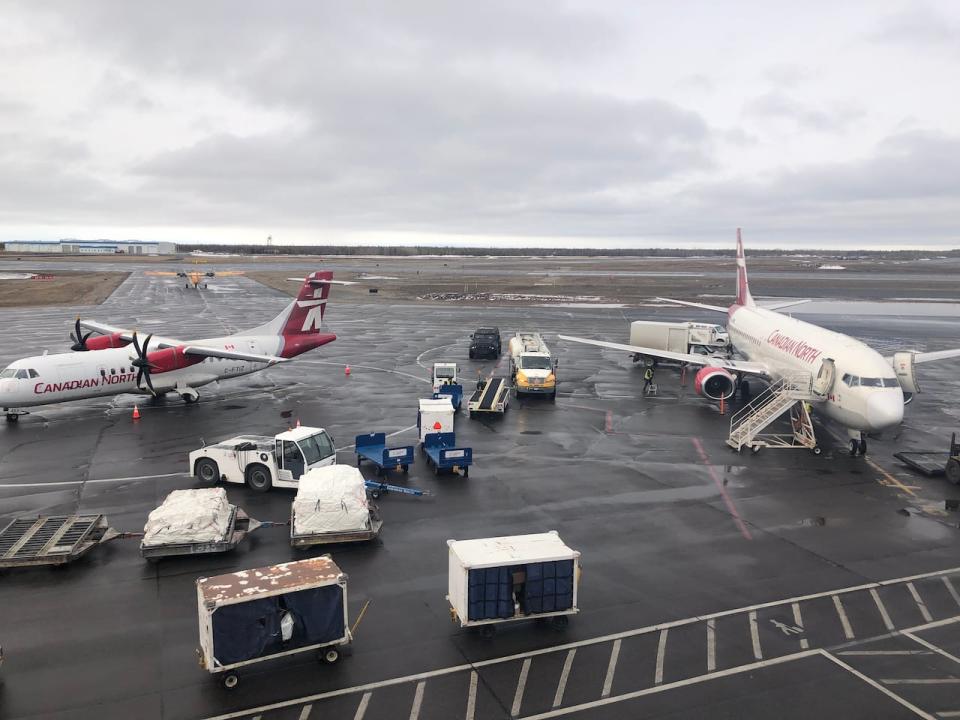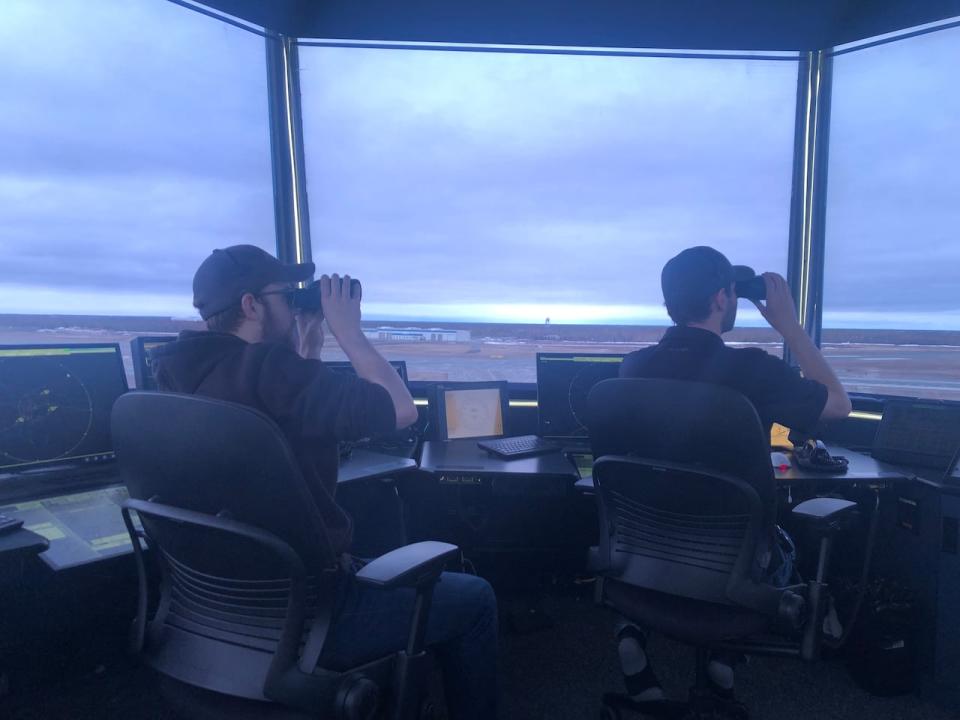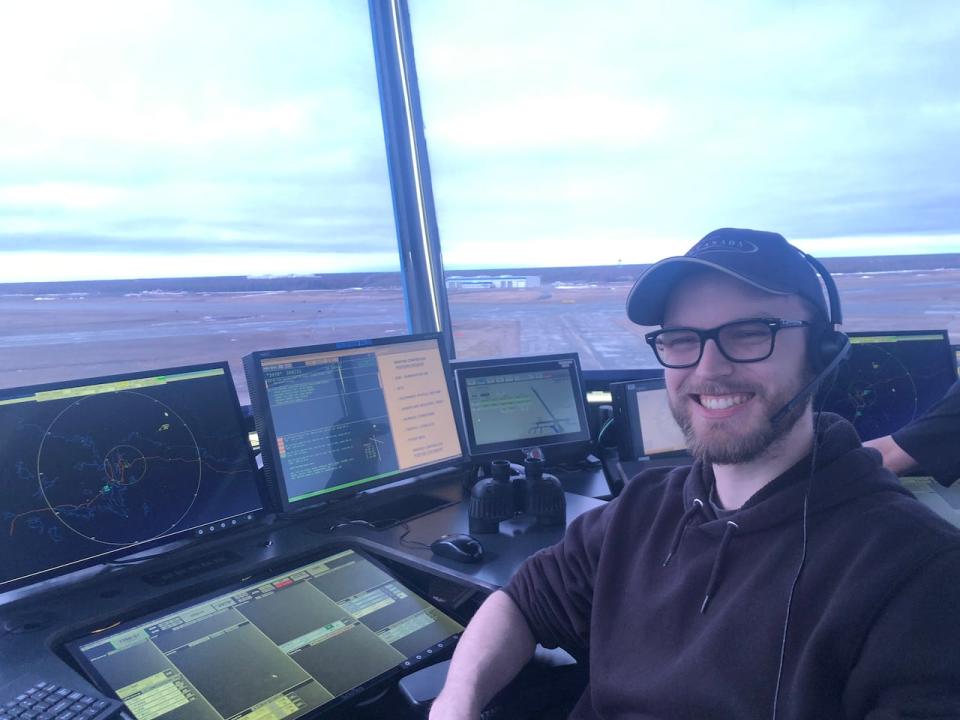How Yellowknife's evacuation in 2023 looked from the city's air traffic control tower

In the Northwest Territories' only air traffic control tower, a small seven-person crew keeps planes safe as they land and take off from the Yellowknife airport.
It's a famously stressful job, but during Yellowknife's evacuation last summer, they had an added challenge — co-ordinating airlift flights out of the city.
Adam Plooy was one of the air traffic controllers who stayed behind during the city's evacuation. He has been working in Yellowknife for about two years, but last summer was his first summer in the city since he completed his training.
"It was extremely hectic," he remembered.
Yellowknife air traffic control is responsible for coordinating takeoff and landing for all air traffic at the Yellowknife Airport, as well as for smaller float planes that land on Yellowknife Bay.
Last summer, even before the city's evacuation, the unit was dealing with a big increase in air traffic from firefighting aircraft — from helicopters transporting fire crews to water bombers.

Air traffic controllers are responsible for co-ordinating planes in the air and on the the runways and taxiways of the airport. (Sarah Krymalowski/CBC)
But the day that stands out most in Plooy's memory is the first day of Yellowknife's air evacuation.
"It was insane. There was airplanes parked everywhere, places I've never seen us park airplanes before," he said. "Meanwhile, the firefighters are still pushing as hard as possible to fight the fire."
"I just remember, not being overwhelmed, but just being shocked at the number of airplanes."
But ultimately, Plooy said it's just part of the job.
Some members of the team temporarily evacuated the city with their families to get them settled, but enough staff remained that operations weren't affected.
The team made it through the summer with no incidents.
"I'm really proud of the way we came together, not only as a controller unit, but as an aviation community," he said, praising the firefighting and airlift pilots who helped ensure that airlifts left Yellowknife as quickly as possible.
"It was chaotic, but it was an extremely important job, and something that I think everyone here took a lot of pride in doing. We live in Yellowknife, and it's our neighbours, it's our families."

Plooy and a fellow air traffic controller watch a plane in the distance on April 25, 2024. (Sarah Krymalowski/CBC)
The N.W.T. government is warning that 2024 may be another active wildfire season, but it will be business as usual for air traffic controllers.
Annual training for Yellowknife's air traffic control unit includes a refresher on procedures for wildfires, and generally includes additional training in any scenarios that went wrong.
But Nav Canada spokesperson Vanessa Adams said that because last summer was without incident, training will likely not be substantially different from other years.

Air traffic controller Adam Plooy says he isn't too worried about the upcoming fire season in N.W.T. 'It's part of my job. I obviously hope we don't get evacuated again, but it's not on the forefront of my mind,' he said. (Sarah Krymalowski/CBC)
As for Plooy, he said he isn't feeling too apprehensive.
"It's part of my job. I obviously hope we don't get evacuated again, but it's not on the forefront of my mind," he said.
"I'm just looking forward to the summer, whatever that holds."


